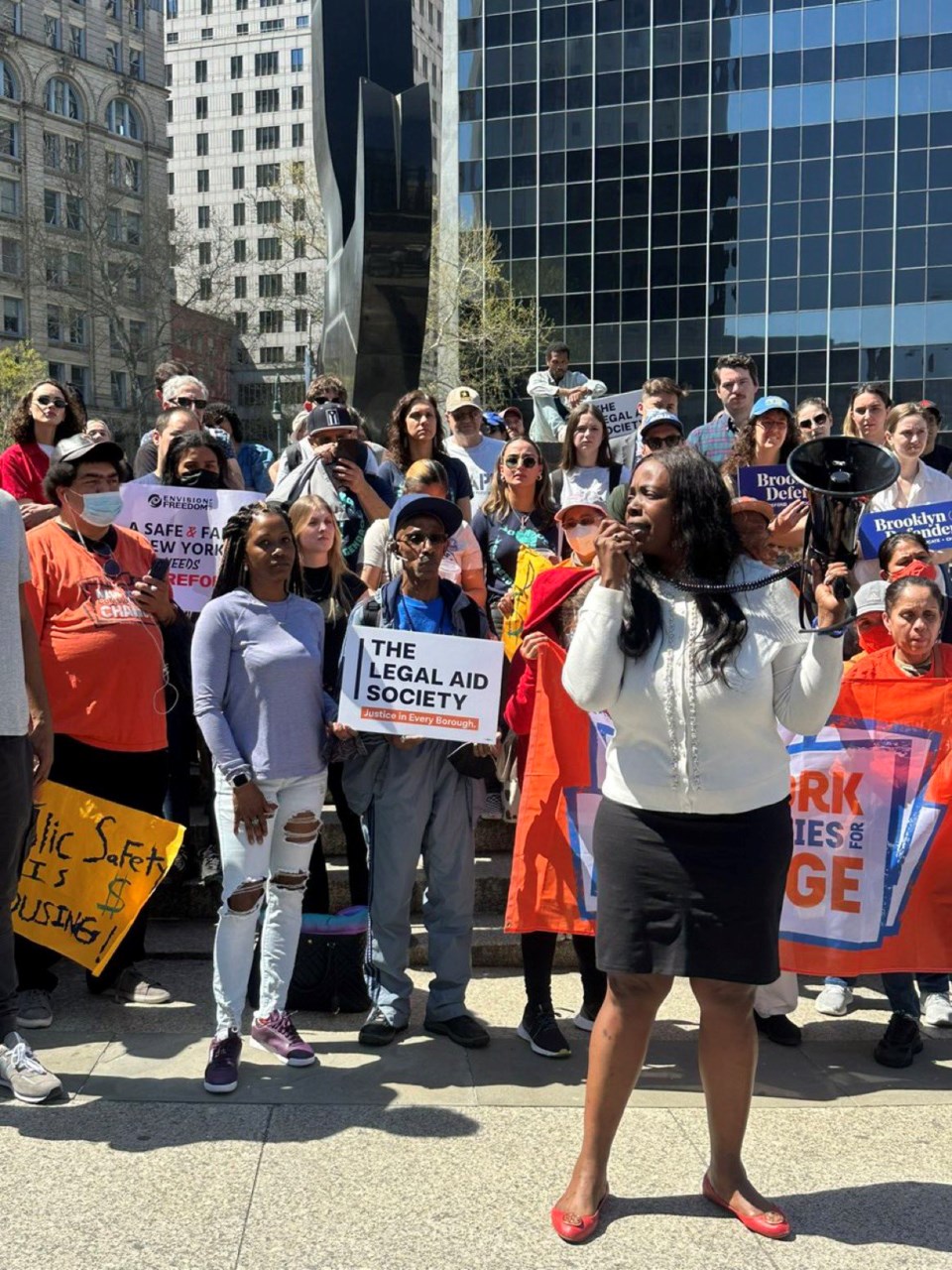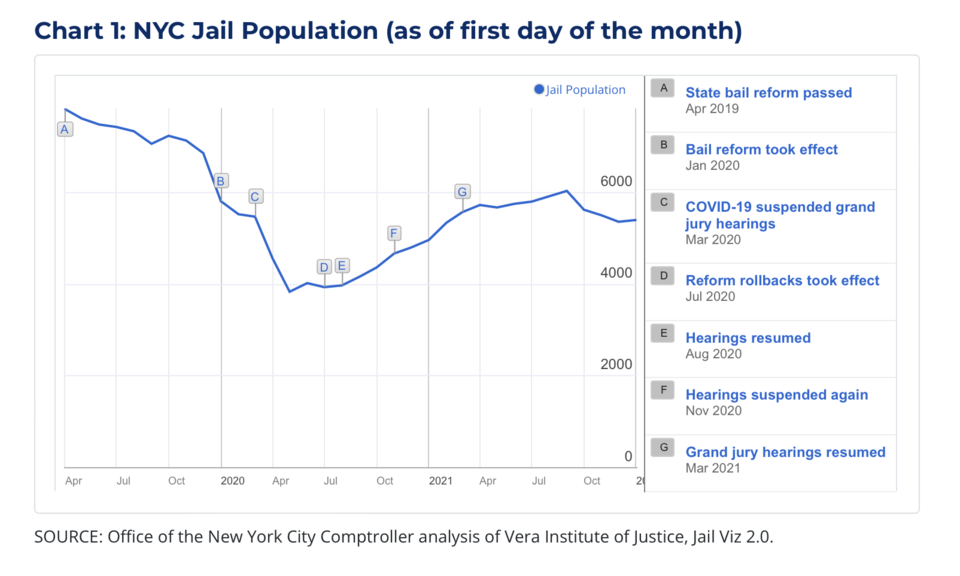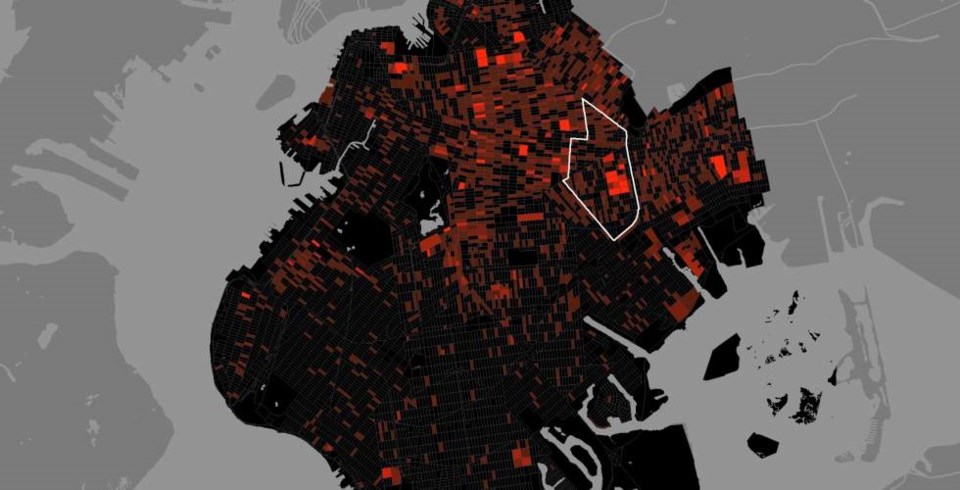For six days now, Brooklyn Assembly Member Latrice Walker has been on hunger strike. In the midst of a fierce battle over bail reform in Albany — one that has already pushed the state’s original budget deadline by two weeks — she hopes to demonstrate the suffering of New York’s incarcerated.
“Yesterday was a pretty tough day,” Walker told BK Reader on Wednesday afternoon. “I did have some headaches. I know that once I get past the first two or three days, which are the hardest, that it tends to get easier.”
This is the second year in a row that Walker has gone on a hunger strike over bail reform. Both times, it has been to protest proposed slashes to a historic bail reform law that passed as part of New York State’s budget in 2019. The law in question, which Walker sponsored, enacted sweeping changes like eliminating bail for most non-violent crimes.
Bail is an amount of money that a defendant must pay either through cash or bonds in order to be released from jail before their trial. After trial, the money is returned to the defendant, sometimes with a deducted fee, if found guilty.
In New York specifically, bail legislation has historically rested on a few key standards. The goal is to get defendants to return to court using the least restrictive means necessary. These two standards are predicated on the idea that the sole purpose of bail is to ensure that offenders appear for their court dates — not to detain potentially innocent people, with potentially fatal consequences.
In Gov. Kathy Hochul’s initial proposal this year, these standards were slashed for bail-eligible offenses. Gov. Hochul has previously worked to expand judiciary discretion in the courthouse, but eliminating key tenets of bail legislation takes her efforts a step further.
"Governor Hochul's Executive Budget makes transformative investments to make New York more affordable, more livable and safer, and she continues to work with the legislature to deliver a final budget that meets the needs of all New Yorkers,” a spokesperson from Gov. Hochul's office said.
While parts of the law have been diluted in the years since, Gov. Hochul’s latest budget proposal goes beyond the scope of that law. Her proposal sets the clock back on bail reform by decades.
“Every year folks who are against, or organizing against, bail reform have been pushing their agenda to roll it backwards,” Walker said of the 2019 bail reform law. “And every year that they don't get all of the points on their agenda, they take what they can and then they come back for more.”
Walker cited the Constitution as a main motivator in her struggle. She referenced the Eighth Amendment prohibition on cruel and unusual punishment, which states that “excessive bail” shall not be required. She also referenced the 13th Amendment, which outlaws slavery, except in the case of criminal punishment.
“What we’ve been seeing with respect to preventative detention has been a violation of constitutional law and folks’ constitutional rights,” she said.
The Brennan Center for Justice has found that there is no link between pretrial release and increased crime. The NYPD makes different claims.
Walker’s district, centered in Brownsville, contains some of the most per-capita arrests in New York State. Many of the blocks are nicknamed “million dollar blocks” because the price of incarcerating the individuals on those blocks costs over a million dollars, are in Brownsville.
“I’ve seen and watched how the million dollar blocks that I represent have become destabilized. Our communities, our families. Folks are losing their jobs, their housing, custody of their children, access to quality healthcare. And all of these things are done without a trial,” Walker said.
“I’ve even had situations where grandmothers and sisters who are in our office trying to get support for bail who have to make tough decisions as to whether or not to purchase medications, essential for survival, and paying their rent."
As of April 13, according to Walker, Gov. Hochul has set her eyes on changing another standard of bail reform called “discovery,” which relates to the collection of materials for a case.
To sustain her hunger strike, Walker has been relying on water, bone broth, Gatorade and vitamin supplements. She plans to continue her hunger strike until the state budget is passed. Last year, that took 19 days. This year, it is again unclear where the finish line lies.






